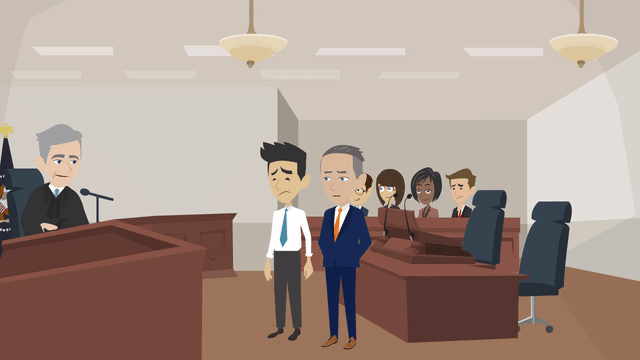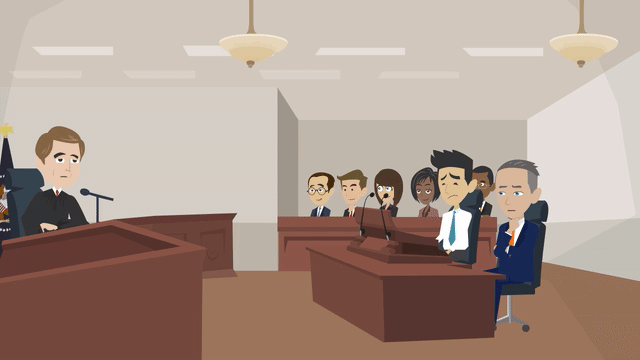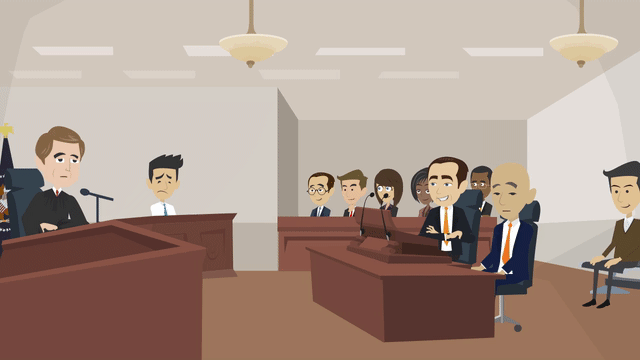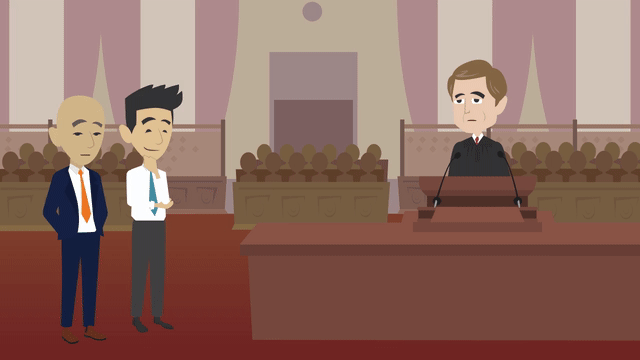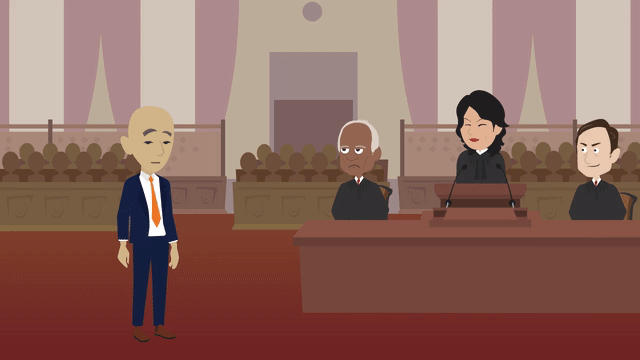Frequently Asked Questions About Assault And Related Offenses
Our criminal defense lawyers provide answers to some important questions below.
In New York State, there are two different types of Reckless Endangerment charges contained in the New York State penal code. The first is Reckless Endangerment in the 2nd Degree, a Class “A” misdemeanor under New York Penal Law §120.20. The second is Reckless Endangerment in the 1st Degree, a Class “D” felony under New York Penal Law §120.25.
While both misdemeanors and felonies are serious, a felony conviction has more severe consequences than a misdemeanor conviction. A conviction for either of these offenses can have lasting ramifications on your life and liberty, so it is important that you contact a criminal attorney who handles reckless endangerment charges immediately if charged.
A person is guilty of reckless endangerment in the second degree when he or she “recklessly” engages in conduct which creates a “substantial risk” of “serious physical injury” to another person. Examples include driving at high speeds through a residential area, or throwing a bottle out of a window in a high rise apartment building.
If convicted of Reckless Endangerment in the 2nd Degree, you could spend up to a year in jail, be sentenced to up to 3 years of probation, and/or required to pay a fine of up to $1,000.
Conduct by a person is considered reckless when:
- He or she engages in conduct which creates a substantial and unjustifiable risk of serious physical injury to another person, and;
- He or she is aware of and consciously disregards that risk, and;
- That risk is of such nature and degree that disregard of it constitutes a gross deviation form the standard of conduct that a reasonable person would observe in the situation.
Serious physical injury is defined as an impairment of a person’s physical condition which creates
- A substantial risk of death
- Causes death
- Causes serious and protracted disfigurement
- Protracted impairment of health
- Protracted loss or impairment of the function of any bodily organ
There are only two types of injuries in New York law, “serious physical injury” and “physical injury”. Injuries that qualify as “serious” as is shown by the definition above, are the most severe.
A person is guilty of reckless endangerment in the first degree when, under circumstances evincing a depraved indifference to human life, he or she recklessly engages in conduct which creates a grave risk of death to another person.
If convicted of Reckless Endangerment in the 1st Degree, you could face up to two and one third to seven years in prison (2 and 1/3 to 7 years), 5 years of probation, a fine of up to $5000, court surcharges, and a mandatory DNA sample/fee. There is no mandatory minimum and therefore a Judge could sentence you to anything from a conditional discharge, probation, or some variation of years that does not ultimately exceed 7 years of incarceration.
This refers to a person’s state of mind. A person has a depraved indifference to human life when that person has an utter disregard for the value of human life, i.e. a willingness to act, not because he or she means to cause grievous harm, but because he or she simply does not care whether or not grievous harm will result. A person who is depravedly indifferent is not just willing to take a grossly unreasonable risk to human life but instead ultimately does not care how the risk turns out.
New York’s highest court, the Court of Appeals, has decided many cases over the past decade that addresses what type of conduct qualifies as “depraved indifference to human life”. It is important that you hire an experienced criminal lawyer who understands the law in New York and how it applies to the facts of your case.
A special jury instruction exists with respect to Reckless Endangerment cases when an individual is voluntarily intoxicated. Voluntary intoxication means that the individual became intoxicated of their own volition and not by force or involuntarily at the hand of another. A person can still act recklessly when he or she creates a substantial risk of serious physical injury despite being unaware of this risk because of intoxication. This means that voluntary intoxication will not be a defense to a charge of Reckless Endangerment in the 2nd Degree. However, voluntary intoxication may be considered in determining whether the defendant’s mind was affected by intoxicants to such a degree that he or she was incapable of forming the mental state of depraved indifference to human life. This means that voluntary intoxication may be considered by the jury as a defense to the charge of Reckless Endangerment in the 1st Degree
When determining the best criminal defense attorney for you, there are several factors that you should consider and discuss with any potential attorney.
- Experience- you should know whether your attorney has experience handling misdemeanors and felony charges, specifically for reckless endangerment.
- Availability- you should know that the attorney has the time to invest in your case to ensure the best possible outcome for you.
- Prior client reviews- the best attorney for you will have positive reviews from prior clients.
- The best criminal lawyers are aware of recent court decisions that may impact your case.
For a full list of possible defenses, see Defenses in Criminal Cases.
When an individual is alleged to have committed a crime, the State of New York has the burden of proving to a jury of your peers that you committed the alleged conduct beyond a reasonable doubt. Instead of a trial, a case may resolve by way of a plea bargain. Whether a plea bargain is offered to you depends on several factors including the strength of the evidence against you, whether any defense exists, and whether there are any witnesses against you. A plea bargain is an offer made by the District Attorney to resolve the allegations without the need for a trial. Whether a plea bargain is in your best interests is a discussion you will have with your criminal attorney. This depends on, among other factors, what the penalties of the offer are compared to the risk of a conviction and a higher sentence if you proceed to trial.
How much it will cost for an attorney to defend you often depends on the unique circumstances and facts of your case. In order to properly defend you, a lawyer must devote many hours of time to your case, understand the facts, research legal issues, communicate with the prosecutor and Court, speak with witnesses, and make motions of your behalf. Simply stated, the more time an attorney spends on your case, the higher the fee will be. If your case proceeds to trial, the fee will be higher than if your case resolves by way of a plea bargain because of the substantial amount of time that must be spent to properly prepare for a trial.
Stalking is an often mentioned but rarely understood crime in New York. From media or the news, you probably have an idea what “stalking” someone looks or feels like.
To start, all degrees of stalking in New York are crimes and a conviction will result in a criminal record. The most serious forms of stalking are Stalking in the 1st Degree and Stalking in the 2nd Degree which are felony offenses as explained below. A conviction for any stalking offense could result in a period of incarceration in local/County jail or State prison, probation, and/or fines. It’s also very likely a court will issue an Order of Protection. An Order of Protection prevents a person from having contact or communication with someone for a designated period time.
In New York, there are 4 different types of Stalking:
- Stalking in the 4th Degree, a class B misdemeanor;
- Stalking in the 3rd Degree, a class A misdemeanor;
- Stalking in the 2nd Degree, a class E non-violent felony; and
- Stalking in the 1st Degree, a class D violent felony.
E felonies are the lowest level in New York, up to A felonies. The higher the letter, generally the more serious the penalties.
Stalking in the 4th Degree is when a person intentionally, and for no legitimate purpose, engages in a course of conduct directed at someone, and knows or reasonably should know that the conduct is likely to cause reasonable fear of harm.
Stalking in the 4th Degree is a class B misdemeanor under NY Penal Law §120.45. If you are convicted of this crime, you face up to 90 days in local/County jail and/or 1 year of probation supervision.
Stalking charges require an understanding of three very important things: “No legitimate purpose”; “Course of conduct”; and “Know or reasonably should know”. These are critical aspects to any Stalking charge. You may very often contact someone many, many times. You may be angry at them. You may be relentless because you are protecting yourself, your family, or your child. When can these things go too far?
No legitimate purpose means that you are acting the way you are to hound, frighten, intimidate, or threaten another person. In other words, it is not enough that you were angry, or upset, or any number of other natural human emotions. In fact, it’s not about your emotions, tone of voice, or body language at all. Rather, it must be proven you are doing these things specifically to hound, frighten, intimidate or threaten another person.
We’ve all done something we later regretted. Stalking is not a crime that is meant to capture singular mistakes. There is no set number of times that makes something a “course of conduct”. What is clear is it must be more than once and should be a series of acts. Could it be two, three, or more times? That will depend on the facts of your case.
Usually, if you do something more than once, then this becomes a question for a judge or jury, to decide whether the number of times you acted that way went from a mistake or two, to a “course of conduct”.
This is arguably the most important part to a Stalking charge. The one thing you can never count on is how another person will feel or react. To be charged with Stalking, you don’t even have to know that the other person is in fear – the government only has to say you reasonably should have known.
In other words, you could truly know and never believe what you are doing would cause harm to someone. But the government may believe “you should have known better”. Getting charged with Stalking in these cases can be particularly scary when you know in your heart you meant nothing wrong by your actions but were sadly misunderstood.
Stalking at this degree builds on many of the same conditions contained in the Stalking in the 4th Degree charge. A charge of Stalking in the 4th Degree becomes a Stalking in the 3rd Degree charge if:
- the fear of harm is a serious physical injury, a sex crime, kidnapping or death; or
- it is directed at 3 or more people, 3 or more times; or
- you have a previous conviction for some crime with this same victim within the last 10 years; or
- you have a previous Stalking in the 4th Degree conviction within the last 10 years.
Here, the existence of any of the above facts make the penalties potentially worse for conduct that would otherwise be considered Stalking in the 4th Degree.
Stalking in the 3rd Degree is a class A misdemeanor under NY Penal Law §120.50. This means that you face up to 1 year in local/ County jail and/or up to 3 years of probation supervision.
Stalking in the 2nd Degree builds on those circumstances listed above with Stalking in the 3rd Degree. You may be charged with Stalking in the 2nd Degree if:
- you commit Stalking in the 3rd Degree and display, possess, or threaten use of a weapon; or
- you commit Stalking in the 3rd Degree and are 21 or older and the victim is under 14; or
- your previous conviction with this same victim is within 5 years; or
- you have a previous Stalking in the 3rd Degree conviction in your past.
Stalking in the 2nd Degree is a class E felony under NY Penal Law §120.55. This means you face a maximum of 4 years in New York State prison and/or up to 5 years of probation.
Stalking in the 1st Degree can be committed in two distinct ways. Both require that you are engaged in Stalking in the 3rd Degree, and while doing so:
- you intentionally or recklessly cause injury to a person; or
- you commit another crime.
Stalking in the 1st Degree is a class D violent felony under NY Penal Law §120.60(1). This means you face a maximum of 7 years in New York State prison.
You can be charged with Menacing in New York State if you are alleged to have placed another person in fear of injury or death. If you are convicted of this offense, you may face jail or prison time, probation, and/or fines. A court will also issue an order of protection preventing you from having contact with the complainant/victim in the case.
In New York, there are 4 different types of Menacing:
- Menacing in the 3rd Degree, a class B misdemeanor;
- Menacing in the 2nd Degree, a class A misdemeanor;
- Menacing in the 1st Degree, a class E felony; and
- Menacing a Police Officer or Peace Officer, a class D felony.
Menacing in the 3rd Degree means the police allege that you intentionally placed or attempted to place someone in fear of injury or death.
Menacing in the 3rd degree is a class B misdemeanor under NY Penal Law §120.15. If you are convicted of this crime, you face up to 90 days in local/County jail and/or 1 year of probation supervision. This type of menacing typically occurs when someone pushes, grabs, strikes, or lunges at someone while threatening that person.
Menacing in the 2nd Degree means the police allege that you intentionally placed or attempted to place someone in fear of injury or death by displaying a weapon such as a knife or a gun.
Second Degree Menacing is also committed when a defendant intentionally places or attempts to place someone in fear of injury or death and such conduct violates an order of protection that was previously issued. An order of protection prohibits you from having contact with a specific person for a stated period of time.
Second Degree Menacing is also committed when someone repeatedly follows a person or repeatedly does something that intentionally places another person in fear of injury or death. This is similar to a stalking charge. Although the most common examples of stalking may involve strangers stalking celebrities, this crime also applies to those who stalk people they know.
Menacing in the 2nd Degree is a class A misdemeanor under NY Penal Law §120.14. This means that you face up to 1 year in local/County jail and/or up to 3 years of probation supervision.
Menacing in the 1st Degree means the police allege that you have committed menacing again, after you have previously been convicted of menacing. This new charge is then elevated to a felony based on your prior conviction.
Menacing in the 1st Degree is a class E felony under NY Penal Law §120.13. This means you face a maximum of 4 years in New York State prison and/or up to 5 years of probation.
Menacing a police officer or peace officer means the police allege that you have placed a police officer or peace officer in fear of injury or death while they are acting in their capacity as an officer, by displaying a weapon.
Menacing a police officer or peace officer is a class D violent felony under NY Penal Law §120.18.This means you face a maximum of 7 years in New York State prison.
Menacing in the 1st, 2nd, 3rd Degrees and Menacing a police officer or peace officer are all crimes in New York State. As such, a conviction for any menacing charge will result in a criminal record.
In New York, there are various types of assault offenses including Assault in the Third Degree, Assault in the Second Degree, and Assault in the First Degree. Other types of assault are vehicular assaults, gang assaults, and assaults motivated as a hate crime. Depending on the type of assault you are charged with will control what type of punishment you face. Below are detailed explanations of the various assault charges that exist in New York state.
Assault in the Third Degree is either intentionally or recklessly causing physical injury to another person. It is also causing physical injury with criminal negligence to another person if you use a weapon.
Assault in the Third Degree in violation of Penal Law section 120.00 is a class A misdemeanor. You face up to one year in jail, up to 3 years’ probation, and up to a $1,000 fine. There will be additional court fees, and a DNA sample will be collected. You also could be ordered to pay restitution, obey an order of protection, and do community service.
Assault in the Second Degree is intentionally causing serious physical injury, or physical injury with a weapon. Other types of Assault in the Second Degree include what would normally be Assault in the Third Degree but against a child; school employee; or senior citizen.
Assault in the Second Degree is a class D violent felony. While a prison sentence is not mandatory, some period of incarceration is mandatory. You face up to 7 years in prison, up to 5 years’ probation, and a fine of $5,000. If you are receiving a probation sentence, you must do some jail, though no more than 6 months. A DNA sample will be collected. You also could be ordered to pay restitution, obey an order of protection, and do community service.
Assault in the First Degree is intentionally causing serious physical injury with a weapon.
Assault in the First Degree is a class B violent felony. A prison sentence is mandatory, and you face a minimum of 5 years and a maximum of 25 years. Your fine could be up to $5,000. A DNA sample will be collected. You also could be ordered to pay restitution and obey an order of protection.
Yes. Even if you did not intentionally hurt someone, you can still be charged with assault if you recklessly, or with criminal negligence, caused injury to another person. Recklessly means you acted while aware of and consciously disregarding a substantial and unjustifiable risk. Criminal Negligence means you engaged in conduct that creates or contributes to a substantial and unjustifiable risk and failed to perceive that risk and had a legal duty of awareness. The degree of risk must be a gross deviation from the standard of conduct a reasonable person would observe. This is a higher standard than negligence in a civil lawsuit.
Vehicular Assault in the Second Degree is causing serious physical injury to someone while driving intoxicated by alcohol, or impaired by drugs, or a combination of the two.
Vehicular Assault in the Second Degree is a class E felony. You face up to 4 years in prison, up to 5 years’ probation, and a fine up to $5,000. A DNA sample will be collected. You also could be ordered to pay restitution, obey an order of protection, and do community service.
Vehicular Assault in the First Degree is committing Vehicular Assault in the Second Degree and any one of the following:
- Your blood alcohol content is .18 or higher.
- The person you cause serious physical injury to is a passenger of yours 15 years old or younger.
- You cause serious physical injury to more than one other person.
Vehicular Assault in the First Degree is a class D felony. You face up to 7 years in prison, up to 5 years’ probation, and a fine up to $5,000. A DNA sample will be collected. You also could be ordered to pay restitution, obey an order of protection, and do community service.
Gang Assault has two degrees, Second and First. Both require intentionally injuring someone while being aided by 2 or more people. Gang Assault in the Second degree is causing physical injury, whereas Gang Assault in the First degree is causing serious physical injury.
Gang Assault in the Second Degree is a class C violent felony. A prison sentence is mandatory, and you face a minimum of 3½ years and a maximum of 15 years. Your fine could be up to $5,000. A DNA sample will be collected. You also could be ordered to pay restitution and obey an order of protection.
Gang Assault in the First Degree is a class B violent felony. A prison sentence is mandatory, and you face a minimum of 5 years and a maximum of 25 years. Your fine could be up to $5,000. A DNA sample will be collected. You also could be ordered to pay restitution and obey an order of protection.
A Hate Crime is committing any specified offense while selecting a victim in whole or in substantial part because of a belief or perception of that person’s race, color, national origin, ancestry, gender, gender identity or expression, religion, religious practice, age, disability or sexual orientation. There are many specified offenses including most degrees of:
- Assault
- Menacing
- Strangulation
- Manslaughter
- Stalking
- Murder
- Rape
- Sexual Abuse / Assault
- Unlawful Imprisonment
- Kidnapping
- Burglary
- Criminal Mischief
- Arson
- Robbery
- Larceny
Being charged with any specified offense as a Hate Crime increases the level of the offense by 1 level. In other words, if you are charged with an E felony as Hate Crime, you face punishment for a D felony. Here are the offense levels, from lowest to highest:
- Violation (not a crime)
- B misdemeanor
- A misdemeanor
- E felony
- D felony
- C felony
- B felony
- A felony
Timeline of a Criminal Defense Case
- Whether you just made a big mistake, or are being falsely accused, this can be a very emotional and important time in a case
- It is very important that you remain silent and not answer any questions about the case without a lawyer present
- Contact a criminal defense attorney as soon as possible
- Confirm the lawyer is an experienced criminal defense lawyer
- Meet with the lawyer who will help you understand the process of a criminal case
- If you have been arrested, critical proceedings and time frames begin immediately
- You will appear before a judge who will determine if you will be incarcerated, released on bail or supervision, or released without conditions
- If you are charged with a felony in a town, village or city court, the prosecuting agency will have six months from the date of your arrest to determine whether to present your case to a grand jury to seek an indictment or return your case to a lower court to be handled as a misdemeanor
- Discovery is the exchange of information between the governmental agency prosecuting you, you, and your attorney
- In New York State this process begins shortly after your appearance in court
- You can expect exchange of the following if it exists in your case:
- Police Reports
- Investigative Notes
- Videos / Body Camera Footage / Dash Camera Footage
- Forensic Reports
- Photographs
- Exculpatory Material (Brady)
- Impeachment Material
- You and your attorney may also be engaged in information gathering that includes:
- Freedom of Information Law (FOIL) Requests/Responses
- Additional Witness Interviews
- Expert Evaluations / Disclosures
- Motions are written applications to the court to request any of the following:
- Preclude Evidence
- Suppress Evidence
- Seek a Ruling on a Constitutional Rights Violation
- Seek Outright Dismissal of One or More Charges Based on Legal/Factual Matters
- Request Hearings
- A plea bargain is an offer from the prosecuting attorney to resolve your case
- Whether to plead guilty or not is always a choice you get to make, not your attorney
- Your attorney will meet with you, discuss the facts and the law of your case, and offer advice. A plea offer takes into consideration your charges as well as:
- Prior criminal history if any
- Life experiences
- Evidentiary Problems
- Post-Incident Actions
- Mental Health Counseling
- Substance Abuse Treatment
- Anger Management Treatment
- If you choose not to accept a plea bargain and are heading to trial, there are likely to be hearings to consider the following:
- Preclusion/Suppression of Evidence
- Admissibility of Evidence
- What Prior Criminal History/Bad Acts May Be Introduced by the Prosecutor if You Testify on Your Own Behalf
- During a hearing, there is no jury, and the judge will make factual and legal determinations regarding what evidence will be allowed at trial.
- You have the right to a trial by a fair and impartial jury or by the judge who will act as both judge and jury
- At a trial, the prosecution has the burden to prove your guilt beyond a reasonable doubt
- The judge or jury will listen to the evidence presented and the arguments by the lawyers, apply the facts to the law, and render a verdict of not guilty or guilty
- A Verdict must be unanimous
- If you are convicted at trial, or if you entered a plea bargain, there will be a sentencing date where your punishment will be imposed by the judge
- If you previously entered a plea bargain, the judge will likely impose the agreed upon sentence at that time
- In the event you are convicted, you have the right to appeal
- This is true whether you plead guilty or are convicted after trial
- However, by accepting a plea bargain, you may have waived some of your appellate rights
- It is important that your attorney file a notice of appeal on your behalf and that you discuss the appeal process with your lawyer
LaMarche Safranko Law Testimonials
“I can honestly say that the best decision I’ve ever made was retaining George LaMarche as my attorney. I was in a situation where everything wasat risk; my career, livelihood, and the ability to provide for my family. In desperation, I contacted over a dozen attorneys. The majority of the lawyers I spoke with promised results without seeing paperwork or knowing valuable facts….
“Throughout the attorney client relationship regarding my personal injury lawsuit, George and his staff continually exhibited tremendous amounts of legal knowledge, skill, and a vast amount of expert resources that ultimately resulted in a final judgment in my favor. George was there every step of the way to explain where we stood and what to expect next and there was never a need to question his professional judgment…
“I cannot thank George E. LaMarche lll and his team for the excellent legal work they provided for my son, and in extension, our entire family. His experience, knowledge of the law, networking ability and communication is second to none. In our case, our son was wrongly accused by a small town police officer and charged with 5 tickets…
“I wanted to express my deepest appreciation to Mr. Andrew Safranko for the exceptional job he did in regards to my legal representation. Mr. Safranko displayed the utmost in professionalism and discretion during the entire court process, and took the time to explain each and every step….
“No one likes to be in a bad situation, but if you need a lawyer George is your man. Not only does he point you in the right direction he offers good advice for your future. As much as we bring him business he does not encourage that next time anticipation….
“My family and I cannot thank George and his staff enough for all of the support and guidance they have given us over the past six months. Anyone who has ever suffered a personal injury knows how difficult they are to overcome, but I’m glad we had such an intelligent and hardworking attorney on our side so I could focus on my recovery rather than on the details of the case….
“Dear Mr. Safranko,
Thank You so much for answering my question, and so expediently!
The dedication, respect, and consideration with which you treat your clients, current and past, is remarkable. It is why I reached out to you when searching in my time of need, and why I would highly recommend…
“Dear George, Andy and Staff,
Thank you all for your kindness and all your help in getting back to my wellbeing and life. I could not have done it without you all. Everything is going so well again. I recommend you highly. Thanks Again!”
“I wanted to take this opportunity to thank you for your excellent representation on my recent matter. I have worked with lawyers, and in law firms much of my professional life, but I have never encountered the rare mix of skill, integrity and humanity in one individual—you….
“The arrest of my husband in 2008 was an extremely difficult and emotional time for our family. The arrest turned our lives upside down. It was sudden and unexpected and had tragic emotional as well as financial consequences. I had no idea what to do under the circumstances….
“I am an attorney who found himself in the middle of a serious, personal legal matter that compromised not only my personal life but my professional life as well. I immediately contacted Andrew (Andy) Safranko, Esq. Andy worked tirelessly and extremely hard to bring my legal situation to a very favorable resolution. In so doing, Andy not only saved certain aspects of my personal and professional life…
“The staff at LaMarche Safranko Law took care of whatever I needed, it was just fabulous. It was top shelf, if I called, I got George. If he was in a meeting, they left him a message. He called me right back after the meeting. Everybody was very courteous and very nice there. If I left a voicemail, everybody got back to me quickly. The level of service was very, very good and I would Highly recommend them.”
“Dear Andrew and George,
I cannot thank you enough for your hard work, diligence, and selfless manner that you put towards my legal difficulties in Colonie. From the first moment I met you, you helped reassure me that things were going to turn out in a more favorable manner than I originally thought. Clearly, the final result of my court case displays the quality of time and work that you put into this….
“Dear Andy,
Thank you so much for everything you have done for our son over the last three years. This has been a very challenging time for our family and the knowledge that our son has an attorney as capable and amazing as you are has given us peace of mind!




